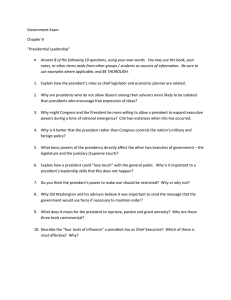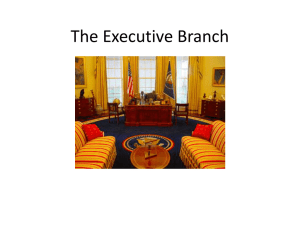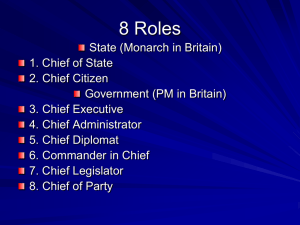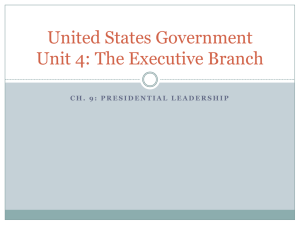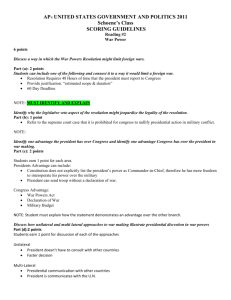Other Roles of the President
advertisement
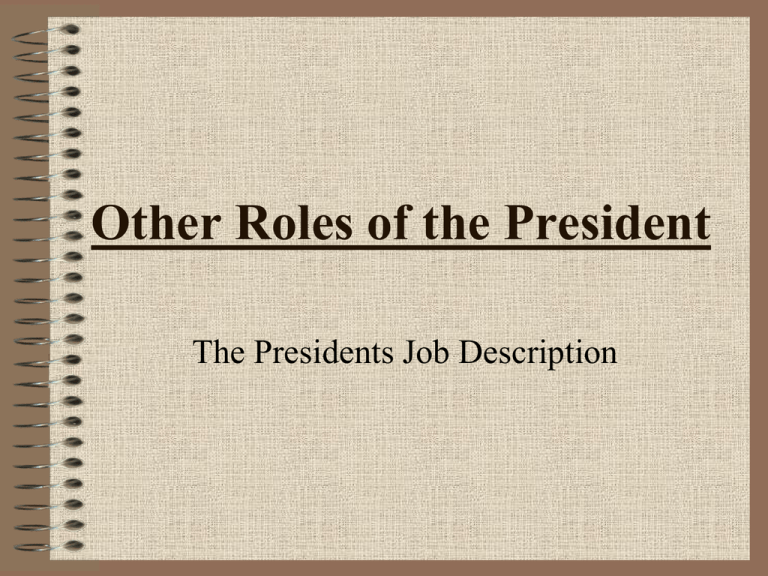
Other Roles of the President The Presidents Job Description Head of State • In England, this role is divided between Queen Elizabeth and Prime Minister Gordon Brown. • In the US, the President fills both roles. • He directs the gov’t while performing all of the ceremonial duties as leader of the US. Chief Executive • The President is in charge of making sure that all of the laws are carried out. • At the Presidents disposal are all of the federal agencies in the Executive Branch. • The President uses “Executive Orders” to carry out his plans. • The President is given this role through his Executive Powers. Chief Legislator • These ideas begin with the State of the Union address. • Presidents often meet with members of Congress to help push the President’s agenda, especially when the other party controls Congress. • The President may also use a veto to dissuade Congress from passing laws the President does not agree with. • This role comes from the Presidents Legislative powers. Economic Planner • Since FDR and the New Deal, the President has become more involved in the economics of the US. • The President is in charge of setting an economic plan for the year during his State of the Union Address. • Ultimately, the President has little control over the economics of the US. Who does though? • This comes from the President’s evolutionary powers. Party Leader • President’s are the leader for their party. • They support candidates for elected positions and appoint party members for political positions. • They are big fund raisers for the party. • This is a “double-edged sword” for the President. Isn’t he supposed to represent everyone in the US, not just his party. Chief Citizen • The President is seen as a role model for the American public. • They should be seen in the best of light by the people. • This would include: – Voting – Good moral standing – Law abiding citizen Chief Diplomat • The President is in charge of our foreign relations. • Many times, the President and Congress conflict over foreign policy. • What advantage(s) does the President have over the Congress? • Information and decision making. • This comes from the President’s diplomatic powers. Commander-In-Chief • This power has often come in conflict with Congress. • The President is given the right under the War Powers Act to engage the military for 60 days without Congressional approval. • Of course, every President has fought Congress over the Constitutionality of this Act. “Other” Leadership Qualities • An understanding of the public. • Ability to communicate with others. • Sense of timing. • Openness to new ideas. • Ability to compromise with others. • Political courage. • Charisma, charm, and a sense of character.

